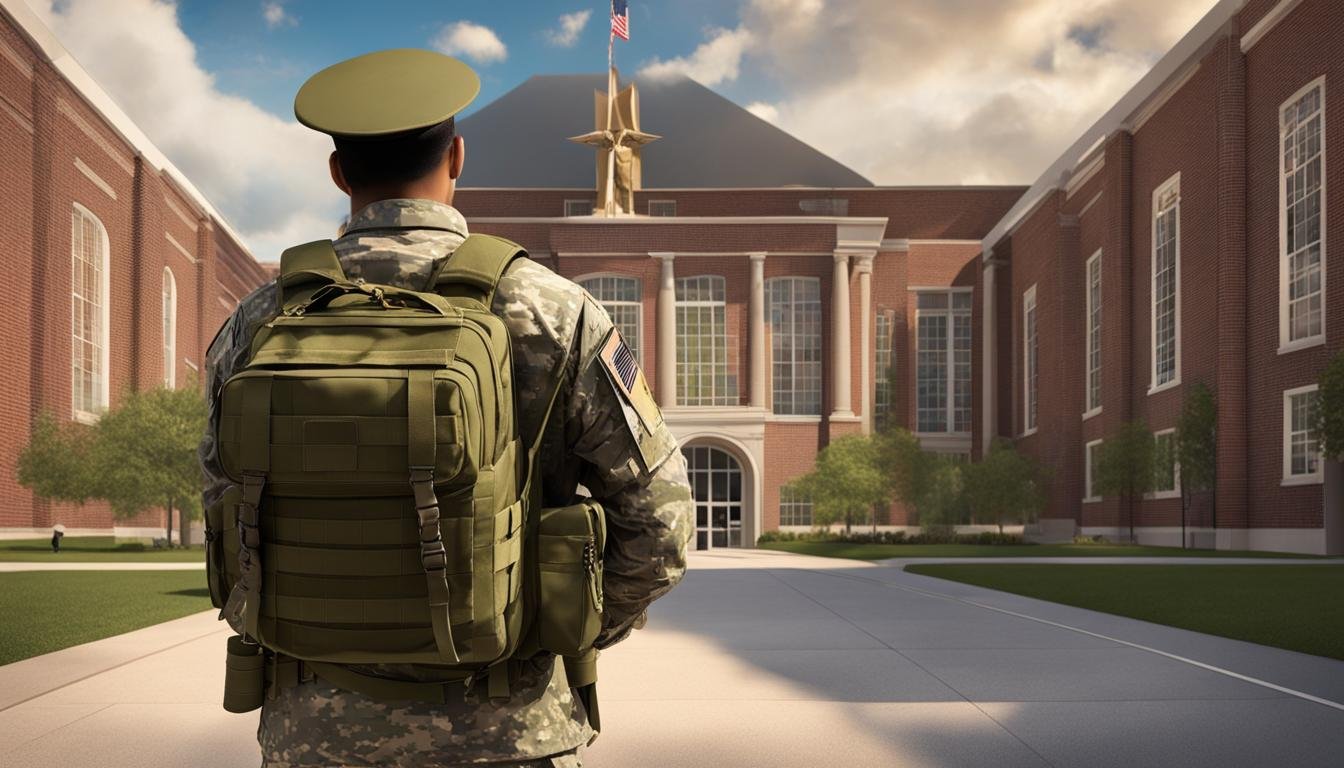Are you a military veteran transitioning into college life? Networking can play a crucial role in your success as you navigate your academic journey. By connecting with fellow veterans, building professional relationships, and leveraging your military experience, you can open doors to exciting opportunities and enhance your career prospects.
Key Takeaways:
- Networking is essential for military veterans in college to expand their knowledge, increase personal and professional reach, and find potential opportunities.
- Online platforms like LinkedIn offer abundant networking opportunities for veterans to connect with peers and gain insights into civilian work culture.
- Joining veteran networking groups on campus and utilizing resources like veteran alumni networks can provide valuable connections and support during the transition from military to civilian life.
- In-person networking events on campus and in the local community, such as college networking events and local Chamber of Commerce gatherings, also offer opportunities for veterans to connect with industry professionals and gather industry-specific information.
- Start building your network early in college, establish a strong online presence, and engage regularly with professionals in your field of interest to maximize networking potential.
Where to Network in College

When it comes to networking in college, there are numerous opportunities for military veterans to expand their professional connections and make meaningful relationships. Here are some key places to consider:
1. College Community:
Start by tapping into the influential people within your college community. This includes classmates, neighbors, and professors who can provide valuable insights and connections. Engage in conversations with them and express your professional interests to initiate meaningful relationships.
2. Online Platforms:
Utilize online networking platforms like LinkedIn to connect with professionals in your field of interest, as well as your academic institution and the military community. Create a strong LinkedIn profile that highlights your skills and experiences, and engage with professionals by joining relevant groups and participating in discussions.
3. Veteran Networks:
Joining veteran online networks, such as those on LinkedIn or other dedicated platforms, allows you to connect with fellow military veterans who have successfully transitioned to civilian careers. These networks provide valuable insights into civilian work culture and can help you build a strong professional network.
4. In-Person Events:
Don’t overlook the power of in-person networking events. Attend networking events organized by your college, local Veterans Administration (VA), and local Chambers of Commerce. These events offer excellent opportunities to connect with industry professionals, gather information about specific industries and companies, and expand your network.
Remember, networking is an ongoing practice, so be sure to establish a solid online presence, engage with professionals, and regularly interact with your connections. By leveraging the resources available in college, such as the college community, online platforms, veteran networks, and in-person events, you can maximize your networking efforts and set yourself up for success in your future career.
| Place to Network | Benefits |
|---|---|
| College Community | Access to influential individuals |
| Online Platforms | Connect with professionals in your field |
| Veteran Networks | Insights into civilian work culture |
| In-Person Events | Opportunities to connect with industry professionals |
How Can Networking in College Benefit Veterans’ Mental Health?
Networking in college can provide crucial mental health support for veterans. Building connections with fellow students and faculty can offer a sense of camaraderie and understanding. Access to support groups, counseling services, and resources can significantly benefit veterans as they transition from military to civilian life.
Conclusion
Networking is of utmost importance during your college journey, especially for military veterans. It not only opens doors to exciting opportunities but also enhances your career prospects and provides much-needed support during the transition to civilian life. By actively engaging in networking activities, you can cultivate genuine relationships, gain valuable knowledge about potential communities and career fields, and leverage your military experience for success.
Online platforms like LinkedIn offer a multitude of networking opportunities. Take advantage of these platforms to connect with professionals in your field of interest, your academic institution, or the military. Additionally, in-person networking events on campus and in the local community can provide further chances to make meaningful connections with industry professionals and gather crucial information about specific industries, companies, and career fields.
Effective networking strategies for college students involve not only building a strong online presence but also engaging regularly with professionals in your field. Start early in college to establish a solid network, curate your master resume, and actively interact with the people you follow. This sets the stage for future success, expands your professional reach, and increases your chances of finding your ideal job after graduation.
Remember, networking is an ongoing practice. Embrace it as an integral part of your college experience and leverage every opportunity to connect, learn, and grow. The benefits are immense, from expanding your knowledge to increasing your chances of finding fulfilling career opportunities. So, don’t underestimate the power of networking in college, as it can be the key to unlocking your ultimate career success.



